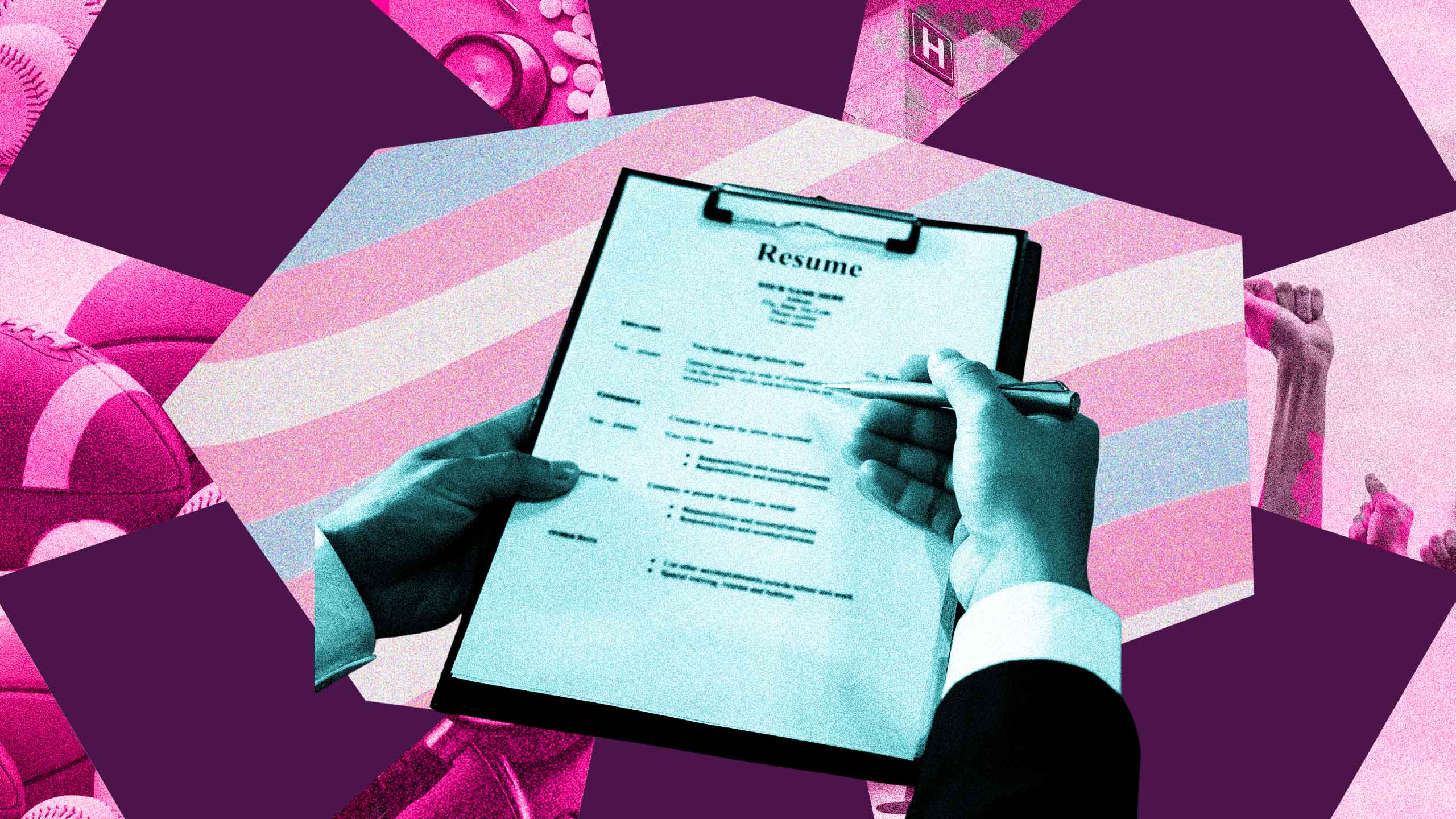It’s well known that trans people are underemployed as a demographic. For years, studies have shown that, despite often being more likely to have a college degree as a group, trans people are significantly more likely to be unemployed or to hold jobs greatly below their qualifications. A 2021 study indicated that trans adults are about twice as likely to be unemployed when compared to cis adults. But until recently, most studies looked into the experiences of binary trans people looking for work. Less was known about the realities of non-binary people in the job marketplace.
This year, though, a study by the University of Toronto provided key insights into the struggles faced by non-binary people in finding new jobs. According to the study, resumés that indicated a candidate who used they/them pronouns were less likely to get a positive response from employers than resumés that either didn’t specify pronouns, or indicated using she/her or he/him pronouns. Posts about the study went viral on social media this week, a couple months after the study’s initial release. The posts garnered an overwhelmingly negative response, which might hint at why some non-binary people have issues getting work.
The study’s design was simple: Resumés and applications were sent out for open positions with identical qualifications—using the same gender neutral names—but there was one key difference. In a set of three, one would explicitly list they/them for pronouns, one would use he/him or she/her and the third wouldn’t list pronouns at all. Once applications were submitted, the researchers waited for an initial response from the employer.
According to the study’s results, resumés with delineated they/them pronouns were statistically less likely to receive an initial positive response in the hiring process compared to those with no pronouns or binary gender pronouns. The political environment of the applicant also made a difference, as applications with they/them pronouns were twice as likely to face immediate rejection in predominantly Republican areas compared with more Democratic geographic locations.
An interesting insight from the study is how well listing binary pronouns like she or him performed versus listing no pronouns at all. Once seen as an indication that someone might be trans, a mass movement to list pronouns in email signatures and professional bios over the last seven years or so saw masses of cis people listing their own pronouns in solidarity with trans people, to make it less out of place in a business environment.
“The study makes clear that non-binary applicants may still benefit from hiding their identities.”
That effort appears to have been a success, at least for binary trans people looking for new jobs. Applications listing binary pronouns garnered a response that was slightly worse, but not statistically different than applications with no pronouns listed at all. But that success in normalizing listing pronouns also seems to have presented a roadblock to non-binary job seekers. The study makes clear that non-binary applicants may still benefit from hiding their identities, at least in the initial application process. And a quick look at replies to a tweet sharing the study’s results shows why.
The tweet was brought to the attention of the frothing transphobe side of the social media app X through quote tweets from the likes of right-wing figurehead Chris Rufo and the anti-trans hate account Libs of TikTok.
The comments are full of people sharing their bigoted reasons why non-binary people shouldn’t get hired. False claims that trans people are mentally ill, or dangerous or are not in touch with reality proliferate in the comments. Others claim that those with they/them pronouns are inherent work disruptions or HR problems waiting to happen.
Discrimination against trans people in the workplace can vary, sometimes spilling over into obvious and inexcusable abuse. But the type of discrimination showed by the study, where an employer sees pronouns they don’t like and ignores the application from there, is much quieter and harder to prove. The social media response to this study shows that many people are perfectly willing to loudly express their desire to break anti-discrimination laws. What’s particularly frustrating is that these posters aren’t making these bigoted statements from personal experience—instead they’re imagining a certain person and they project that on to everyone who happens to be trans or non-binary.
One tweet even stated that “politics” don’t belong in the workplace.
Non-binary people are not “politics”—they’re people. Other people’s politics might change how they treat non-binary people, but that’s not a problem with non-binary people; it’s a problem with bigots.
This type of comment in particular reveals an insight into those who agitate online against trans lives. They don’t truly see non-binary people as autonomous people who have lives, interests and—in the context of the workplace—job skills of their own. Instead, non-binary people are nothing but a set of identities. We are nothing but what makes us different from the norm, and they hate us for that difference.
In America, everyone is supposed to have the right to work, even trans and non-binary people. The conservative Supreme Court even agrees. But in America, that promise of opportunity is not extended equally. We have a long way to go to reach equality for trans and non-binary people, but it starts with seeing us as individual people, and not just what makes us different from the norm.


 Why you can trust Xtra
Why you can trust Xtra


